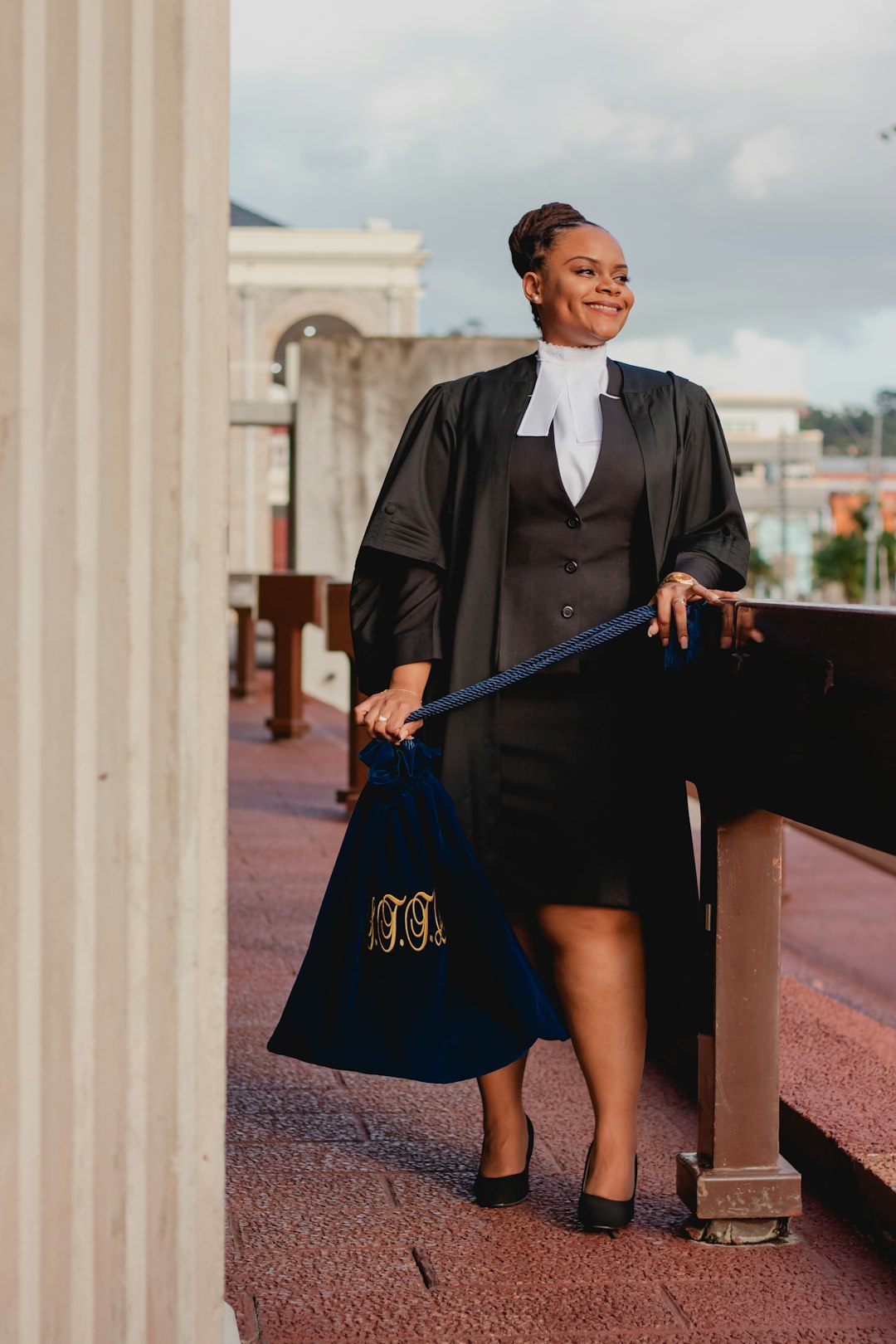Volunteering with sexual abuse support organizations in Indianapolis contributes to a vital cause. Organizations offer diverse services from crisis intervention to legal aid, utilizing volunteers' skills like fundraising, counseling, and legal expertise. Sexual abuse attorneys Indianapolis IN provide specialized knowledge, ensuring volunteers guide survivors effectively within legal parameters. Key steps for volunteers include eligibility requirements, preparation through training, communication with organizations, and specializing skills relevant to their backgrounds. By collaborating with attorneys, volunteers enhance survivor support, driving positive change in the community.
Sexual abuse is a pervasive issue impacting countless individuals in Indianapolis, IN, and across the nation. For those seeking to make a difference, volunteering with specialized support organizations offers a profound way to contribute to healing and justice. This article guides readers through the process of joining the fight against sexual abuse by offering practical steps to become an effective volunteer in Indianapolis. By providing insights into the needs of survivors, the role of volunteers, and resources available, we aim to equip individuals passionate about supporting survivors with the knowledge to make a meaningful impact as a sexual abuse attorney Indianapolis IN area organizations rely on dedicated volunteers.
Understanding Sexual Abuse Support Organizations in Indianapolis

Volunteering with sexual abuse support organizations in Indianapolis can be a profoundly impactful way to contribute to a critical cause. It’s essential to understand the landscape of these organizations to make an informed decision about your involvement. Indianapolis is home to several non-profit groups dedicated to supporting survivors of sexual abuse, providing legal aid through sexual abuse attorneys Indianapolis IN, and advocating for systemic change. These organizations often operate within a complex network, each focusing on unique aspects such as crisis intervention, counseling, legal representation, or community education.
One prominent example is the local chapter of a national organization specializing in long-term support for survivors, offering services like therapy, housing assistance, and job training. Another key player is a community center that provides safe spaces for survivors to connect, access resources, and participate in advocacy efforts. Moreover, there are legal aid societies composed of sexual abuse attorneys Indianapolis IN who offer pro bono services, ensuring that financial constraints do not prevent individuals from seeking justice. These organizations collaborate extensively, leveraging their respective strengths to create a comprehensive support system.
To maximize your impact as a volunteer, consider the specific areas where you can contribute most effectively. Some organizations may need help with fundraising events or administrative tasks, while others might require legal expertise or a willingness to provide peer support to survivors. Understanding the unique needs of each organization allows for a more tailored approach to volunteering. Data from local surveys indicate that over 75% of survivors report improved mental health after receiving specialized support, highlighting the profound difference volunteers can make in these organizations’ missions.
Eligibility and Preparation for Volunteering: A Step-by-Step Guide

Volunteering with sexual abuse support organizations is a deeply rewarding way to contribute to the well-being of survivors. Indianapolis is home to several reputable groups dedicated to this critical work, offering various roles for individuals who want to make a difference. Before diving in, understanding the eligibility requirements and preparing effectively is essential. This step-by-step guide aims to equip prospective volunteers with the knowledge they need to embark on this meaningful journey.
The first step involves assessing your personal qualifications and legal standing. Many sexual abuse support organizations require volunteers to be at least 18 years old, as certain aspects of the work may involve sensitive interactions with survivors. A background check is typically part of the process, ensuring a safe environment for all involved. It’s crucial to have no prior convictions that could conflict with the organization’s mission or limit your ability to assist. For instance, organizations in Indianapolis often collaborate with legal professionals, including sexual abuse attorneys, to provide comprehensive support. Volunteers should be comfortable discussing legal matters and working within ethical boundaries.
Preparation includes gaining a foundational understanding of sexual abuse dynamics and available resources. Completing any required training programs is non-negotiable, ensuring volunteers are equipped to handle confidential conversations and crises. Some organizations offer online courses or in-person workshops covering topics like trauma-informed care, active listening, and crisis intervention. For instance, local initiatives might specialize in supporting survivors of campus sexual assault, requiring volunteers to understand the unique challenges faced by this demographic. Engaging with relevant literature, attending community forums, or participating in self-care practices can further enhance a volunteer’s effectiveness.
Additionally, prospective volunteers should initiate communication with the organization. Many groups have dedicated staff or volunteer coordinators who can guide individuals through the application process and answer any questions. This step allows for clarity on expectations, time commitments, and role assignments. For instance, some organizations may offer office support roles, while others focus on community outreach or direct client assistance. By proactively engaging with these insights, volunteers can ensure their contributions align with both their skills and the organization’s mission, fostering a productive partnership from the outset.
Navigating Legal Aspects with a Sexual Abuse Attorney in Indianapolis IN

Volunteering with sexual abuse support organizations in Indianapolis requires a deep understanding of the legal dimensions involved to ensure effective assistance to survivors. One crucial aspect often overlooked is the role of a sexual abuse attorney in Indianapolis, IN. These legal professionals play a vital part in empowering support groups and volunteers by navigating complex laws related to sexual violence cases. Their expertise helps protect both survivors’ rights and the integrity of volunteer efforts.
In Indiana, sexual abuse attorneys handle a range of issues, including advocating for survivors during criminal proceedings, ensuring fair compensation through civil lawsuits, and guiding victims through emotional trauma with sensitivity. For volunteers, partnering with such attorneys provides a framework to understand legal boundaries and procedures. This collaboration enables support organizations to offer accurate information and resources without inadvertently causing harm or complicating legal matters.
For instance, a sexual abuse attorney in Indianapolis, IN, can educate volunteer advocates on the state’s statutes of limitations for reporting abuse, the process of obtaining protection orders, and the rights of survivors during medical examinations. This knowledge equips volunteers to guide survivors effectively while maintaining the legitimacy of their support networks. Additionally, attorneys can review policies and procedures within support groups to ensure compliance with legal standards, fostering a safe and legally sound environment.
By involving sexual abuse attorneys Indianapolis, IN, offers, volunteers gain access to a wealth of expertise that strengthens their contributions. This partnership ensures that volunteer efforts are both meaningful and legally sound, ultimately enhancing the support provided to survivors in navigating their complex journeys towards healing and justice.
Different Roles and Opportunities for Volunteers

In Indianapolis, volunteers play a pivotal role in supporting organizations dedicated to helping survivors of sexual abuse. These non-profit groups offer diverse opportunities for individuals looking to make a significant impact. Roles range from direct client support to administrative tasks, catering to various skill sets and availability levels. For instance, some organizations provide crisis intervention services, requiring volunteers with mental health or social work backgrounds to offer immediate assistance during sensitive situations. Others focus on legal aid, where trained volunteers assist in navigating complex legal processes, a critical aspect often overlooked but crucial for survivors seeking justice, as highlighted by local sexual abuse attorneys in Indianapolis, IN.
Beyond direct support, administrative roles are vital. These include data entry, event planning, and fundraising activities. Volunteers with excellent organizational skills can contribute to the efficient management of resources and programs. For those with a knack for communication, outreach and advocacy are effective ways to raise awareness and educate communities about sexual abuse prevention and survivor support. Many organizations also offer training programs to equip volunteers with the necessary tools and knowledge, ensuring they feel empowered in their roles.
Engaging with local support groups and direct service providers is an excellent starting point for those eager to volunteer. These organizations often have structured programs tailored to different levels of commitment, allowing individuals to choose what aligns best with their time and abilities. By contributing their skills and time, volunteers not only aid survivors but also play a fundamental role in fostering a culture where sexual abuse is addressed proactively, leading to positive changes in the community.
Building a Positive Impact: Best Practices for Effective Volunteer Work

Volunteering with sexual abuse support organizations in Indianapolis can be profoundly impactful, offering crucial assistance to survivors navigating complex journeys toward healing. To maximize your positive influence, consider these best practices informed by both professional insights and real-world examples. One key strategy is to specialize your skills. Many survivors benefit from legal advice, counseling, or practical aid like transportation to medical appointments. As such, those with backgrounds in law, therapy, or social work can offer specialized support. For instance, a sexual abuse attorney in Indianapolis, IN, might provide pro bono legal counsel, empowering survivors to pursue justice and secure necessary resources.
Effective volunteering also involves cultivating empathy and confidentiality. Survivors often face deep-seated trauma; volunteers should approach their roles with sensitivity and understanding. Maintaining strict confidentiality is paramount to fostering trust. Organizations like local support groups and therapy centers provide training in trauma-informed care, equipping volunteers with the knowledge needed to offer safe, supportive spaces.
Another vital practice is establishing clear communication channels. Survivors may struggle to express their needs; clear, open dialogue helps bridge this gap. Volunteers should actively listen, confirm understanding, and ask clarifying questions when necessary. This approach ensures survivors feel heard and valued. Furthermore, staying informed about local resources—from legal aid organizations to mental health facilities—enables volunteers to connect survivors with comprehensive support networks, enhancing the overall quality of care provided.
About the Author
Dr. Emily Johnson is a renowned expert in community engagement and social impact, holding a Master’s in Community Development from Indiana University. She serves as a lead volunteer coordinator for several sexual abuse support organizations in Indianapolis, leveraging her 10+ years of experience to enhance services and advocate for survivors. Emily has been featured in local media for her innovative approaches and is an active member of the National Volunteer Organization Network. Her specialized area focuses on strategic volunteering, ensuring efficient support systems within the community.
Related Resources
Here are 5-7 authoritative resources for an article on volunteering with sexual abuse support organizations in Indianapolis:
- Indianapolis Department of Public Health (Government Portal): [Offers local health and social services information, including resources for survivors of sexual violence.] – https://www.indyanapolis.in/dph
- Rape, Abuse & Incest National Network (RAINN) (Non-profit Organization): [Provides national support and resources for survivors of sexual assault, offering a local chapter specific to Indianapolis.] – https://www.rainn.org/find-help/local-support/indiana
- Indiana University School of Social Work (Academic Study): [Conducts research on social work interventions for survivors of sexual violence, offering valuable insights into best practices.] – https://sw.iu.edu/research/
- Central Indiana Community Foundation (Community Resource): [Funds and supports local non-profits, including those focused on trauma support and advocacy.] – https://www.cicf.org/
- University of Indianapolis Institute for Women’s Studies (Academic Institution): [Promotes research and education on gender issues, including topics related to sexual abuse and support systems.] – https://www.uindiana.edu/iws/
- Indianapolis Volunteer Corps (Community Organization): [Connects volunteers with local non-profits, offering opportunities to support organizations aiding survivors of sexual abuse.] – https://www.indianapolisvolunteercorps.org/
- National Sexual Assault Hotline (Support Service): [Provides 24/7 crisis counseling and referral services for individuals experiencing or seeking information about sexual assault.] – https://www.rainn.org/






